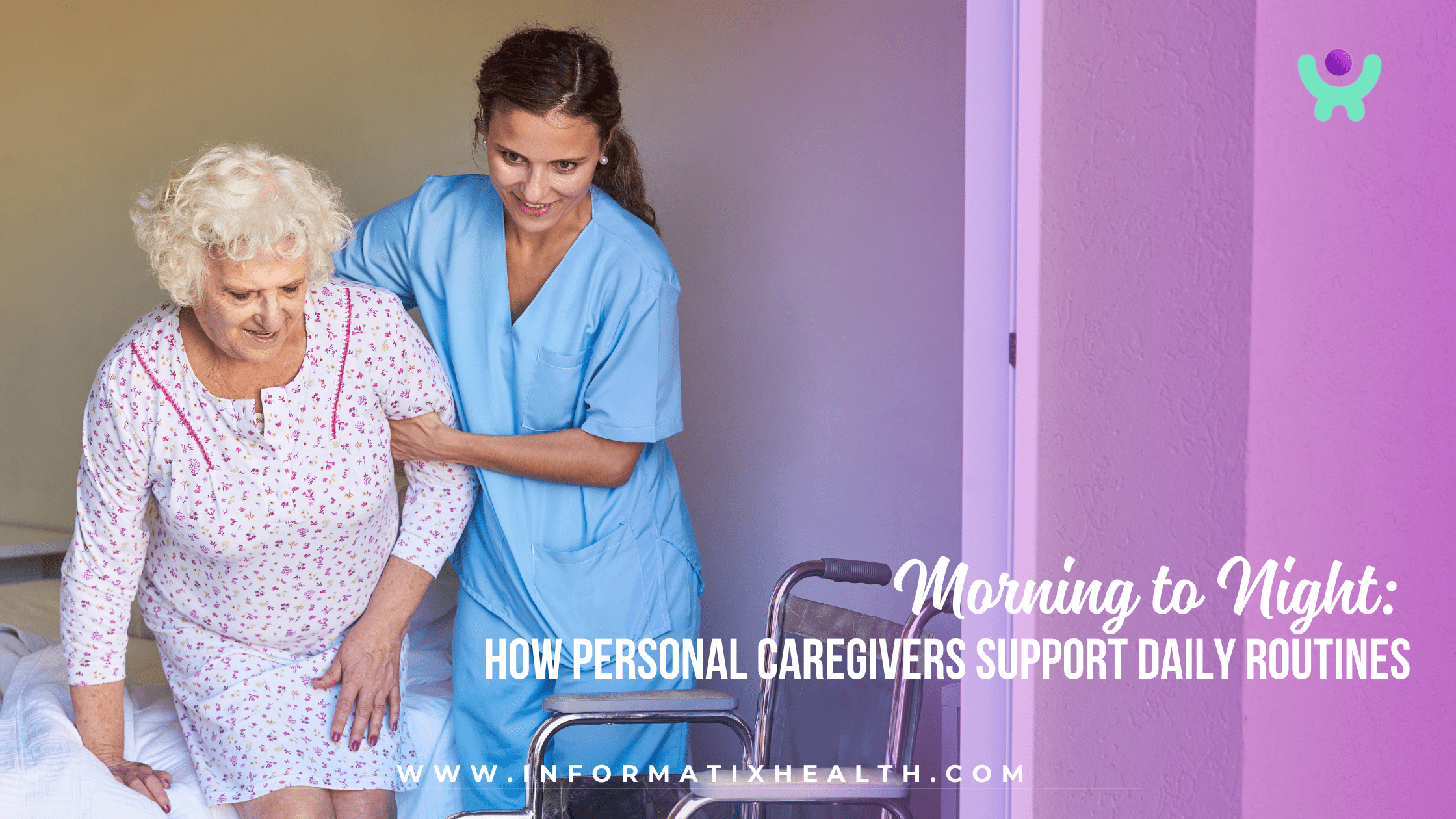Personal caregivers play a vital role in supporting individuals with daily routines, significantly enhancing their quality of life. From morning to night, caregivers provide assistance that caters to both physical and emotional needs, ensuring a seamless flow throughout the day. Below, we explore how caregivers contribute to daily routines during various times of the day.
Morning Support
The morning can be a challenging time for individuals with disabilities, chronic illnesses, or age-related issues. Personal caregivers assist in several ways:
- Waking Up: Caregivers help clients wake up at the desired time, often using gentle methods to ensure a positive start to the day. For instance, they might open curtains to let in natural light or play soft music.
- Personal Hygiene: Assistance with bathing, grooming, and dressing is crucial. A caregiver may help a client with limited mobility take a shower or choose suitable clothing for the day, promoting independence while ensuring safety.
- Meal Preparation: Breakfast is often prepared by caregivers, taking into account dietary restrictions or preferences. For example, they might prepare a nutritious smoothie for a client who requires a quick, easy meal.
Midday Activities
As the day progresses, caregivers continue to support various aspects of daily life:
- Medication Management: Caregivers often remind clients to take their medications at prescribed times, ensuring adherence to treatment plans. They may also assist in organizing medications into pill organizers.
- Transportation and Social Engagement: Many caregivers provide transportation to appointments, social events, or community activities, helping clients maintain social connections. For instance, they might accompany a client to a lunch date with friends.
- Light Housekeeping: Caregivers often take on light housekeeping tasks, such as cleaning up after meals or doing laundry, which helps create a comfortable living environment.
Evening Routine
As the day winds down, caregivers play an essential role in preparing clients for the night:
- Dinner Preparation: Caregivers often prepare dinner, focusing on nutritious meals that cater to the client’s dietary needs. For example, they might cook a low-sodium meal for someone with hypertension.
- Relaxation and Leisure Activities: After dinner, caregivers may engage clients in leisure activities such as reading, watching TV, or playing games, promoting mental engagement and companionship.
- Bedtime Routine: Preparing for bed is another critical area where caregivers provide support. They help clients with nighttime hygiene, assist them in getting dressed for bed, and ensure they are comfortable and safe in their sleeping environment.
Emotional and Social Support
Throughout the day, caregivers also provide emotional support, which is just as important as physical assistance. They often serve as companions, offering conversation and companionship, which can help alleviate feelings of loneliness or depression. For example, a caregiver might share stories or listen to a client’s experiences, fostering a sense of connection and understanding.
Conclusion
In summary, personal caregivers are essential in supporting daily routines from morning to night. Their assistance ranges from practical tasks like personal hygiene and meal preparation to emotional support and social engagement. By providing this comprehensive care, they not only enhance the independence and well-being of their clients but also contribute positively to their overall quality of life.
Looking for dependable, compassionate care from morning to night?
At Informatix Health, our personal caregivers are here to support your loved one’s daily routine—whether it’s a helping hand with breakfast, a ride to appointments, or a comforting presence at bedtime. We proudly serve families in Brockton, MA, with care that brings peace of mind and enhances quality of life.
Contact us today to learn more about our personalized home care services.


